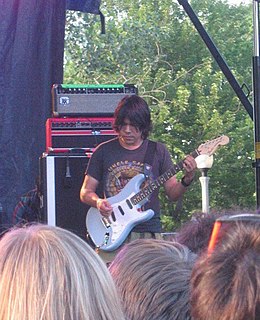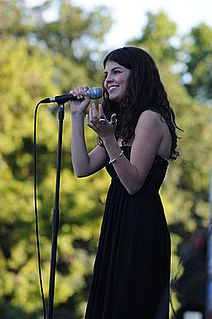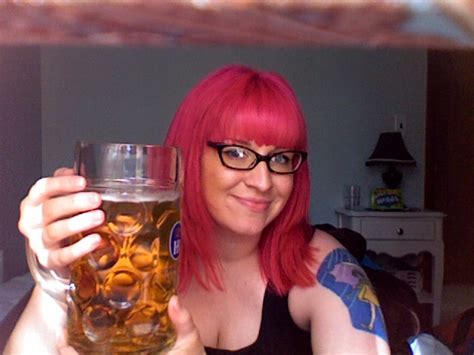A Quote by Kate Nash
It's great to be able to find a way to release your music and do what you want to do artistically and not have to just worry about being accepted by the major label industry.
Related Quotes
You have to be able to grow and move with the organism that is the music industry. You need to maintain flexibility. Ownership of your own stuff is key and then you're able to dictate on a present-terms basis what would be the most effective way to protect yourself and what you've created. You also don't want to lock yourself into a situation where a major label owns part of your touring and merchandise.
I think for us, we don't feel like the future of music is in the act of being a record company. We feel like the future of the music business is in empowering artists to have better and better tools to communicate with their fans. We want to be people who are saying to artists, "Look, you don't need that company over there to release your album. You can do it this way." Almost more of a band partnership than a label-artist relationship. Not about ownership of content, but about empowerment.
The thing about being on the majors, from the beginning, going into this, I was like, "I'm not going to be treated like a factory," because that's never the way it was done before. You're talking about a major label, we're talking about serious business; you're not an artist anymore, you're a business, you have to work in terms of product, you have to release a product, and I don't really think that way at all.
If you're in music for the right reasons, you don't pay much attention to the grueling industry. For sure, it's great to have your work appreciated, but it should never be the driving factor. If you don't depend solely on affirmation from the industry to continue to find love in what you do, then you can have as along of a career as you want. I've always been in this for the music and that won't change.
I love the way I make hip-hop and I refuse to make pop-rap. I don't refuse to make mainstream music, which is why I did a soul record. There was no reason why soul music couldn't get played on the radio and I still wanted to have a relationship with my record label. So, I really enjoyed doing the Strickland Banks album. But there's no point in my trying to release underground hip-hop music on a major label. That part of my talent, or part of my art, had to live somewhere else and feature film was the perfect vehicle for it.
I think music is just a great place to focus your energy and your feelings. If you're young, you can take all that stuff that you feel so intensely about - especially these days, but I'm not going to go there - but to take all those feelings and put them into music was such a big deal for me to be able to play punk rock songs. It was such a release for me. It's a good thing for parents to support that.
I work at a record label where I have archives. These things [memorabilia] occurred and are important to somebody, and they're important to me. I find the record industry largely repellent. This music, the Teen Idles, all of that stuff, is important to me. I don't have lawyers, an agent or a manager. However I find the music industry largely repellent. I just make records because that's what I love to do. So I think that era, those pieces of media, I keep in my collection.
Record industry's not so much against artists, but certain people are just wicked people that sit up in the industry who go against the artist. The thing is, if you're in the recording business, where's our health benefits? Where's the royalties from when you put stuff on labels in different countries? And now, with all these 500 cable channels, you want your mechanical royalties, your licensing. There's so much technology that you've got to stay on top. They always try to tell you, "Oh, don't worry about the business side, just do the music."
My thing from the beginning is to have it be useful, and be able to help others. It's about being efficient and getting there as fast as you can. If people want to do it more artistically or in a freestyle way, I have absolutely no problem with it — that's the way it's going to evolve. It's not my style, but if it's other people's [style], that's perfect.




































